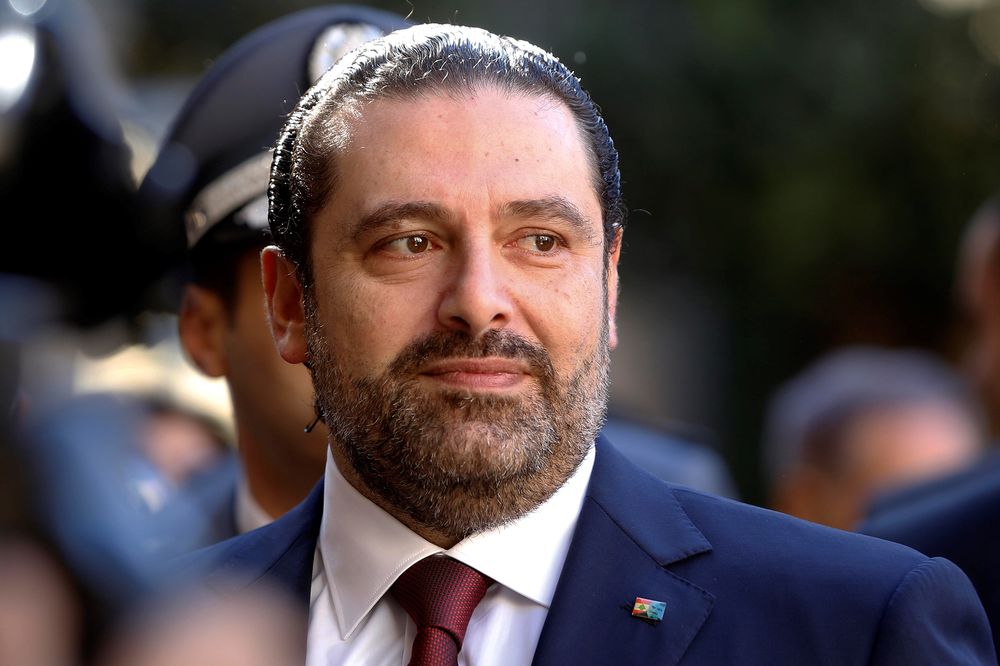Lebanon's Hariri Says He's Free in Saudi Arabia, Back Soon

EghtesadOnline: Lebanese Prime Minister Saad al-Hariri, in his first public comments since his surprise Nov. 4 resignation from the Saudi capital, dismissed speculation that he was held against his will in Saudi Arabia and said he plans to return home within days.
In an interview with his Future TV from his home in Riyadh, Hariri said that he will resign officially when he goes back to Beirut. He also left open the possibility he may return to office if Lebanon committed to stay neutral in regional conflicts.
At stake, he said, was the risk of economic sanctions by Arab countries if Hezbollah, the powerful militant group backed by Iran, continued to side with the Islamic Republic against Saudi Arabia. Lebanon, one of the world’s most indebted countries, relies on remittances from citizens working abroad to keep the banking system stable and maintain the currency’s dollar peg, Bloomberg reported.
Hariri’s resignation, announced in a televised speech from Riyadh, has thrust Lebanon, a fragile country with a history of being a battleground to proxy conflicts, into the fore of a showdown between the Middle East’s two predominant powers. The tension escalated when Saudi Arabia accused Iran of providing Yemeni rebels with a ballistic missile that targeted the international airport in Riyadh, a charge Tehran denies.
Diaspora’s Fate
“There are between 300,000 to 400,000 Lebanese living and working in the Gulf and others living in Europe,” Hariri said. “If we place ourselves in axes, what will happen to these Lebanese?"
Hariri also said he will resign officially when he goes back to Beirut, but also left open the possibility he may return to office. “If we want to revoke the resignation, we should respect neutrality and withdraw from regional interference,” Hariri said, referring to Hezbollah. “We cannot have any more ambiguity around Lebanon’s neutrality.”
Ibrahim Kanaan, a lawmaker from the Free Patriotic Movement, a rival of Hariri’s Future group, said on Twitter after the interview that Hariri’s return was “key to all political options and constitutional solutions.”
Hariri sought to dispel speculation that Saudi Arabia summoned him to Riyadh and broadsided him with a demand to resign because he wouldn’t confront the Hezbollah militant group -- a charge the kingdom has denied.
“I am free in the kingdom,” he said in the interview. Speaking with a Lebanese flag in the background, he insisted that he wrote his own resignation speech and that he took that step to the benefit of all Lebanese.
Sigh of Relief?
The resignation roiled Lebanese markets last week. Lebanon’s debt risk, measured by credit default swaps, climbed 91 basis points, according to data compiled by Bloomberg. Lebanon’s $1.54 billion Eurobonds rose on Monday, sending the yield down 22 basis points to 8.037 percent at 8:08 a.m. in London.
Saudis had not estimated the kind of shock and backlash that Hariri’s resignation would create, said Maha Yahya, director of the Carnegie Middle East Center. The Lebanese markets will “to some extent” breathe a sigh of relief on Monday, “but I don’t think that people will calm down until they actually see him in person in Lebanon with his family with him.”
Hariri again blamed Iran and Hezbollah for destabilizing his country and defended Saudi Arabia’s war of words against the Islamic Republic.
“Hariri is stuck in the middle,” said Kamran Bokhari, senior analyst with Geopolitical Futures. “He wants to counter Iran and Hezbollah but does not want to simply be a Saudi pawn on this chessboard.”
Hariri was propelled into politics by the assassination of his father, former Prime Minister Rafiq Hariri, in 2005. A UN-backed tribunal has charged Hezbollah members with the killing, which took place shortly before Syria’s military pullout from Lebanon, but the group denies involvement.
Saad Hariri was appointed prime minister in 2016 in a power-sharing deal that saw the election of Aoun as president and the end of a two-year political vacuum in Lebanon.


